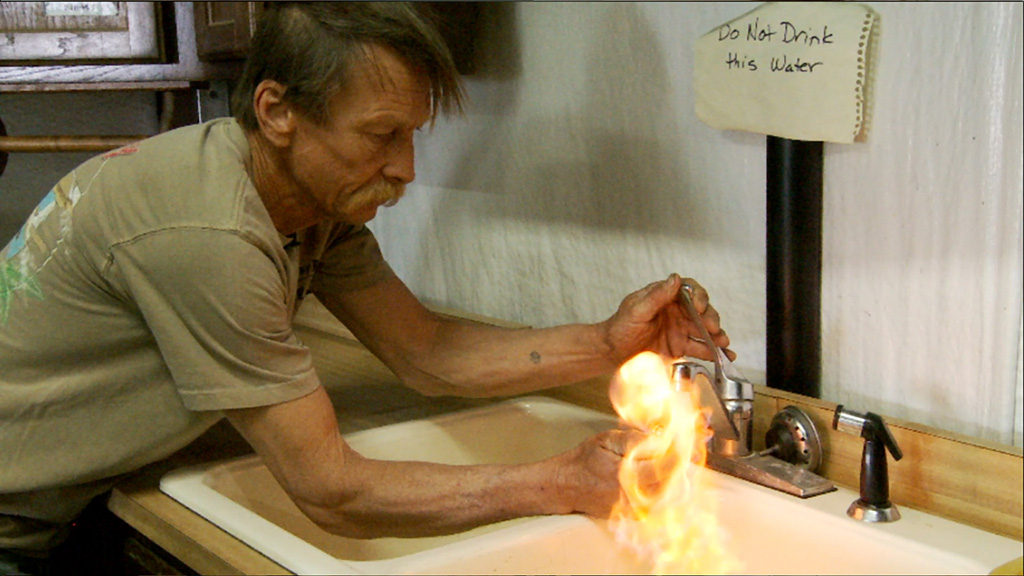On Tuesday, April 25, the Oregon House of Representatives passed a bill that would place an outright ban on hydraulic fracturing for the next decade. More than that, the bill — Oregon House Bill 2711 — would make it illegal to advance any rule making efforts regarding fracking. If turned into law, the bill would put a complete halt to the advancement of any fracking project in the state and might, as Oregon conservatives claim, any type of extraction in the state.
Author Archive: admin
Anti-fracking Protestors Totally Miss the Point of a ‘March for Science’
On April 22, people around the world gathered for Earth Day. The annual celebration is used historically as an opportunity to raise environmental awareness and get people involved in the effort to preserve our glorious planet. In 2017, environmentalists throughout the United States used the opportunity to stage a “March for Science.” The various parades, protests, and the like were executed with the implicit understanding that science isn’t a factor for the US government when considering environmental policy.
And while the “March for Science” was an all-inclusive criticism of federal policy, one of the chief areas of concern was the US government’s continued support for hydraulic fracturing. Of course, those people marching in support of science are overlooking some pretty important facts in their pursuit of “knowledge.”
Drones: Swooping Soon Over an Oil and Gas Project Near You
It seems like drones are appearing more and more in our day-to-day lives. The United States government uses them in combat. Amazon is ironing out the wrinkles of a drone delivery system for its vast array of products. And now, the oil and gas industry is employing these flying sentinels to keep an eye on pipelines and projects across the world.
Get ready to meet the newest tool in the ongoing struggle to make oil and gas extraction safer, cheaper, and more efficient.
Overturn of ‘Gasland’ Verdict Highlights Fundamental Flaw in Anti-Fracking Agenda
Late last week, Judge Martin Carlson vacated a jury award of more than $4 million to two families in Dimock, Pennsylvania who claimed in 2010 that hydraulic fracturing contaminated the ground water in their small Pennsylvania town. The loss of the Dimock verdict, which was popularized in the Academy Award nominated documentary Gasland, is a huge setback for the anti-fracking movement.
Wait, So What Is ‘Gasland’?
Released in 2010, Gasland is a documentary that claims to provide a glimpse at the environmental hardships caused by fracking. The writer and director, Josh Fox, spent several months interviewing residents and speaking to scientists about the potential dangers of fracking in his quest to vilify the practice. In that goal, Fox was imminently successful.
On its release, Gasland earned rave reviews from all the places you’d expect — Variety, Huffington Post, Bloomberg, etc. It even helped influence and chronicle a court case in which two families in Dimock, Pennsylvania claimed to have suffered health issues as a result of contaminated ground water caused by hydraulic fracturing.
It’s stirring stuff, which is why environmentalists have been using Gasland to scare the ever-loving crap out of impressionable people for seven years.
So, Why Would a Judge Set Aside Such a Righteous Verdict?
In the grand tradition of documentaries that make their case too well, it turns out that Gasland was a total hit job that used sensationalized information to make its anecdotal and incorrect point. While professional movie reviewers praised Fox’s narrative structure, actual scientists were dismayed by Gasland’s melodramatic and scientifically baseless story.
Let’s take, for example, an editorial written for Forbes just after the film’s release. In it, engineering professor Dr. Michael Economides passionately attacks the film for its blatant fictions. In one of the film’s most famous scenes, for example, a Colorado local actually ignites his tap water because, ostensibly, the evil act of fracking has caused natural gas to leak into the man’s water supply. Economides easily refutes this point by highlighting a Colorado Oil & Gas Conservation Commission statement released after that organization specifically investigated the faucet-lighting scene.

What’s happening here is staged. Plain and simple.
“There are no indications of any oil- and gas-related impacts to your water well,” the COGCC concluded, adding, “Methane gas is common in water wells in Colorado. It occurs naturally … as a byproduct of the decay of organic matter.”
That’s just one example of the hyperbolic and simply untrue “information” used in Gasland. In overturning the verdict, Judge Carlson pointed out several more inaccuracies and concluded:
“[T]he weaknesses in the plaintiffs’ case and proof, coupled with serious and troubling irregularities in the testimony and presentation of the plaintiffs’ case – including repeated and regrettable missteps by counsel in the jury’s presence – combined so thoroughly to undermine faith in the jury’s verdict that it must be vacated and a new trial ordered. Moreover, the jury’s award of more than $4 million in damages for private nuisance bore no discernible relationship to the evidence, which was at best limited …”
The Verdict on Drinking Water Contamination Is In, Folks
There’s a romanticized notion rumbling though the media and among anti-fracking activists that hydraulic fracturing is poison to ground water. For more than a decade, environmentalists have been struggling to make the case and, to date, they’ve failed to do so. What’s more, it seems as though anti-frackers are actively ignoring scientific proof to the contrary.
In 2015, the EPA completed a 5-year study that concluded that fracking wasn’t a threat to the groundwater. In the media, however, the bigger story was the “heroic team of scientists” who rushed in to dismiss the findings and return their own report. Then, for some reason, when that team of fracking haters also concluded that fracking didn’t harm ground water, there was little press representation to be found.
In fact, “fracking hurts water” is still a woefully common argument against the practice, in spite of the fact that there isn’t a single reputable study that supports that claim.
Science Isn’t as Compelling as Sad People
Honestly, Judge Carlson’s verdict is more likely to be viewed as a win for the “oppressive oil and gas industry” more than it will be seen as yet another illustration of the fragility of the anti-fracking movement.
Why? Because listening to some grizzled, old, sad person tell a scientifically baseless, but emotionally compelling story is way more fun than trying to incorporate dry facts into your worldview, regardless of which is more reliable.
As Much as He’d Like To, Donald Trump Can’t Save Coal
During his Presidential campaign, Donald Trump made no bones about his support for the domestic coal industry. For Trump, the quest to save coal is a quest to save jobs in the Northeast. Since taking office, Trump hasn’t turned his back on the coal industry. Unfortunately, most experts think that the President’s legislative efforts to help a once vibrant American industry may be quixotic at best.
An Environmental Regulation Rollback
On Tuesday, March 28, Donald Trump issued an executive order with the goal of eliminating several Obama-era environmental regulations. Specifically, Trump’s executive order revokes a rule designed to reduce carbon emissions from power plants. The legislation also overrules several Obama policies that sought to mitigate the effects of climate change.
For Trump, however, putting United States citizens to work should be the nation’s top priority. As he explained before he signed the order, “My action today is the latest in a series of steps to create American jobs and to grow American wealth. We’re ending the theft of American prosperity and rebuilding our beloved country.”
Though that goal is absolutely admirable, the sweeping changes may have come too late to save the flagging coal industry.
Coal Is Simply Past Its Prime in the United States
In 2017, something remarkable happened. For the first time, coal was dethroned as the top fuel used for power. Who took the top spot? Natural gas, of course. Currently, the United States is the world’s largest producer of natural gas, and the industry has plans in place to expand even further in the coming years.
The decision to ramp up natural gas use in the United States wasn’t the choice of oil and gas companies, either. It was a decision made largely by several utilities companies who set in motion plans to replace their coal infrastructure with cleaner burning natural gas. Extraction companies are simply meeting the need of energy producers in the United States and the rest of the world.
Ten years ago, coal might have been saved, but the Obama administration regulations got just enough time as the law of the land that utilities companies and coal extraction companies were forced to set in motion an irrevocable transition to natural gas.
To try and undo the millions in set up costs in order to go back to dilapidated coal mines which would likely cost millions more to repair and restaff just doesn’t make sense for many American companies.
The United States Is Oil and Gas Country
Let’s not even mention the fact that all but a few holdouts have acknowledged that hydraulic fracturing is much less harmful to the environment than coal, even though it totally is.
In terms of sheer dollars and cents, natural gas is the preferred method of extraction for most energy companies for obvious reasons. It’s cheaper, it’s safer, and it’s much easier on the planet Earth. Not only that, but a transition to natural gas extraction stands to make the United States billions in annual income as we work to meet the growing international demand.
The fact is, coal had its time in America, but the new millennium requires a technological step forward, and for the time being that’s oil and natural gas.





